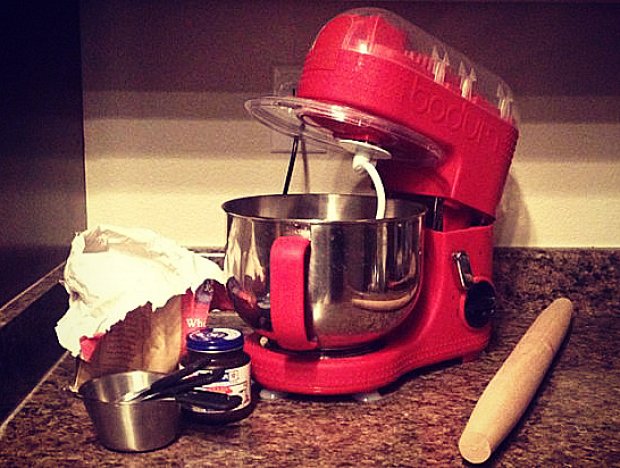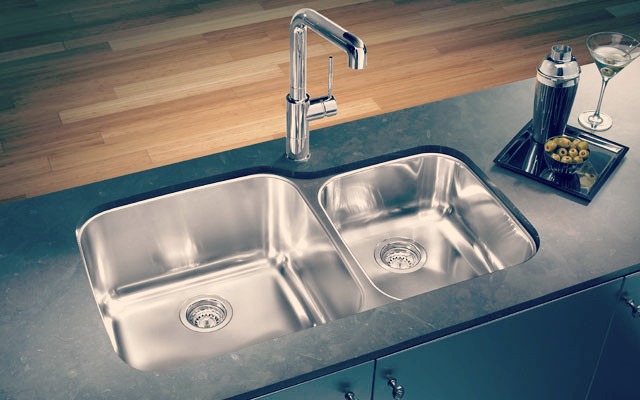A kitchen sink is a necessary component in any modern kitchen. It serves as a useful area for dishwashing and food preparation while also improving the overall appearance of the kitchen space. Kitchen sinks are available in a wide range of options, and homeowners are frequently torn between the modern allure of granite composite and the timeless beauty of stainless steel. Both alternatives have distinct advantages, and recognising their distinctions can help you make an informed decision for your kitchen makeover.
Why Pick a Granite Kitchen Sink?

Natural granite sinks are rare and pricey. So, anytime you want to splurge on this functional kitchen element, pick an elegant and durable granite sink made from composite that comprises of 80% granite or quartz dust and 20% acrylic resin. It is a designed material moulded into a sink form to provide a long-lasting option.
Granite kitchen sinks come in various colours, styles, shapes, and finishes. The most popular colours are white, black, and brown. And the best part? The granite sinks are fade-resistant, so you won’t have to worry about your black granite fading with time. When compared to stainless steel, granite provides many more design alternatives.
Natural granite kitchen sinks, on the other hand, have natural differences in the stone throughout, however, they are not consistent in colour, unlike their composite counterparts. Many granite slabs come in creams, tans, and greys. In terms of durability, a granite kitchen sink can last 40 to 50 years when properly cleaned and maintained.
Sinks made of granite are among the most durable alternatives on the market. Cracks may form over time, but they are simple to repair during your fixture’s annual sealing. They are scratch, dent, and chip resistant. However, if not handled properly, they can chip. Place pots and pans in the sink with care.
They are also nonporous, which means that discolouration is uncommon. To assist prevent stains, clean your granite sink regularly, including the one made of composite. Additionally, you can set a hot pan or dish in the sink without ruining the finish as granite is a heat-resistant material. While granite composite sinks are extremely unlikely to shatter, natural granite sinks may crack if not properly sealed.
Natural granite is quite bulky, which might lead to cracks during installation. Once installed, homeowners should seal and care for every year to prevent cracking. Also, never dump heavy dishware, pots, or pans into your sink, since this can cause inadvertent breakage. To prevent germs and bacteria from thriving in the kitchen, regularly clean your granite sink with warm water and soap.
Why Pick a Stainless-Steel Sink?

Stainless steel is the most widely used material for kitchen sinks. It’s extremely robust and comes in several shapes and configurations. Stainless steel is easy to clean and can last for many years with proper care. Stainless steel sinks are known for their silver appearance, but they also come in black, brass, bronze, and copper.
These come in several finishes, such as brushed, mirrored, polished, matte, satin, hammered, and more. Not all stainless-steel sinks are of equal grade. If you’re looking for a stainless-steel option, you could encounter the word “gauge” along with a number. Gauge describes how thin or thick a sheet of stainless steel is.
Lower gauges, such as 14 to 18, are extremely robust and high-quality. Higher gauges, such as 18 to 23, are less durable and may not perform as well over time. In addition to stainless steel gauges, the quality of the steel is important. The most popular stainless steel sink grades are 18/8 and 18/10. These grades indicate how much chromium and nickel are included in the steel.
Grade 18/8 is highly rust-resistant, whereas 18/10 is rust-proof and holds its polish well. Depending on the gauge, grade, brand, and quality of your stainless-steel sink, it can last 15 to 30 years. And just because stainless steel is one of the most affordable materials, it does not mean you have to compromise on quality.
Stainless steel sinks are susceptible to scratches. However, some sink textures and finishes are more effective at concealing scratches than others. If your sink scratches, you can buff it with flour or olive oil to hide the scratches and make it shine. Stainless steel sinks are highly unlikely to discolour.
However, if they have been cleaned with a bleach-containing detergent, they are more likely to develop water spots or light stains. Because stainless steel sinks have a non-porous surface, they are extremely easy to clean. Daily, clean them with warm water and dish soap using a soft cloth or sponge.
If your stainless-steel sink has become dull, vinegar will restore its shine. Use a soft cloth or sponge to wipe baking soda into your sink for a thorough cleaning. After cleaning with soap and water, put a little olive oil into the sink to reduce scratches and make it look shiny again.




















